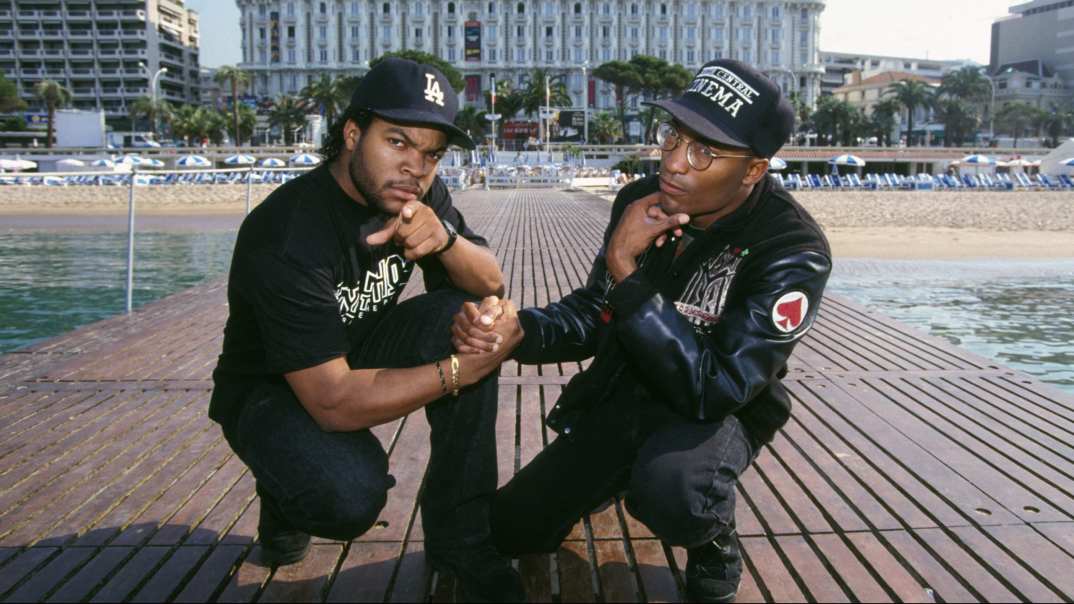Was Doughboy from ‘Boyz n The Hood’ a criminal? An exploration based on a curious correlation made by him, a criminal
OPINION: The line correlating criminality with the inability to read from the classic 1991 John Singleton-helmed film has always irked me — especially because of who said it.

Editor’s note: The following article is an op-ed, and the views expressed are the author’s own. Read more opinions on theGrio.
John Singleton’s 1991 magnum opus, “Boyz n The Hood” is probably one of my favorite films. It seemed to have done a genuine job of laying out what life might have looked like for many folks from south central Los Angeles (now South Los Angeles), a world — to that point — I only knew through the lyrics from NWA and Ice Cube albums. A visual representation of the streets and culture that birthed those lyrics was a game changer, probably for most of us not from there. And unlike most films in the “hood” genre, there was, at least, a sliver of optimism at the end in the form of main character Tre and his girlfriend, Brandy, heading off to Atlanta to attend Morehouse College and Spelman College, respectively. Kudos to an amazing film, Mr. Singleton. Rest in power.
The film isn’t perfect. For instance, there’s the literally impossible plot device used to further drive a stake into your emotions when — spoiler alert — minutes before Ricky is gunned down in the street, his SAT results that would have made him eligible for a football scholarship to the University of Southern California are delivered. Never mind that he took that paper-and-No.2 pencil test THE DAY BEFORE during a time when it took no less than six to eight weeks to receive your results. I mentioned this in an episode of “Dear Culture” because some 32 years later, it still makes me laugh; the sheer audacity of thinking nobody would notice cracks me up every time.
But there’s another scene that has always perplexed me. Allow me to paint you a picture. When the film time jumps some years from Doughboy and Lil’ Chris being escorted out of Doughboy’s home for stealing from a store, we open on a backyard cookout that is celebrating Doughboy’s return from, presumably, another stint in prison. I don’t actually know how old they are — it’s never made clear who is older between Doughboy and Ricky though Doughboy gives off big brother energy. Anyway, Tre and Ricky are seniors in high school, so let’s assume Doughboy is a year or two older, so perhaps 19 or 20 at the time. Anyway, so for the sake of argument, let’s assume he got released from a not-short but clearly not-long stint in the pokey.
While at this cookout, Tre asks Doughboy how he got so big inside. And he says there wasn’t much to do but lift weights and eat. The rest of his time he was writing to his girl and reading, to which one of his homies, Monster, incredulously asks, “Reading???!?” Doughboy’s response is classic but also entirely ridiculous. It’s expletive-laden but allow me to paraphrase:
“Yeah, I ain’t no criminal, I can read!” There are a few choice words placed appropriately for punctuation but that’s the gist. And it’s an asinine statement for Doughboy to make for a few reasons. Do you have a minute? Allow me to expound.
For starters, let’s just examine the very reason Doughboy is making that statement at that time. THEY’RE LITERALLY AT A COOKOUT CELEBRATING HIM COMING HOME FROM THE PEN. Also, his words are “the pen,” which is short for the penitentiary. Doughboy’s own mother asks Tre to speak to him so that they can keep him out this time. Doughboy isn’t only a criminal, he’s a repeat offender. He’s literally a crimer. He does the crimes.
The definition of a criminal is “one who has committed a crime.” And look, I’m not even saying Doughboy is guilty of whatever crime he was convicted of that put him in prison, however, based on his behavior in the rest of the film, I am inclined to say that perhaps he may have been convicted (a time or two) of the wrong crime, but he was guilty of some crime. That’s just me pontificating though.
Additionally, over the course of the film, we see Doughboy engage in at least one murder, emotionally justified and/or code of the streets, notwithstanding, I think we can all agree that killing Ferris was not self-defense and thus murder, which is a crime. Not to mention he’s carrying a firearm at all times. Sure, it’s for protection and clearly needed, but he also doesn’t seem against using it at a moment’s notice, which I think we can also all agree is criminal behavior.
Let’s look at his actual statement, too: “I ain’t no criminal, I can read.” The implication here is that criminals can’t read, which is odd considering that Doughboy — a criminal — just pointed out that he spent time in prison … reading. He is literally disproving his own point, whether he thinks he’s a criminal or not (which we’ll get to). But, I think if we were to scrub the annals of history and poll most convicted criminals — I posit that if you haven’t been convicted in a court of law, you shouldn’t have to call yourself a criminal, even if you are out here committing crimes; confusing I know — I would bet most criminals can, in fact, read. I have no proof of this but based on documentaries I’ve seen and some of the criminals I personally know, I’m going to go on ahead and say that while there may be some correlation between an inability to read and a propensity to commit crimes, assuming that being able to read precludes one from being a criminal is patently false and ridiculous.
In fact, I’m more surprised that Monster was incredulous at Doughboy’s reading than Doughboy — who just got out of the penitentiary, again — insinuating that he wasn’t a criminal. That crew, who in later scenes literally argued about the existence of God, seems like the type to argue and debate anything.
Let’s discuss why Doughboy might not consider himself a criminal. Perhaps he considers criminality a state of mind, like a person who chooses to commit crimes when he doesn’t have to. It is entirely possible that Doughboy believes he has only committed certain crimes out of a need to survive. Doughboy sells dop e— we see at least one hand-to-hand drug transaction — to make money. He carries his gun for protection from the streets he helps to make unsafe. He kills Ferris and crew in retaliation for Ricky, who isn’t even part of the street life but a civilian. So maybe Doughboy (save for that one time as a juvenile where he says he’s going to the store without money and ends up arrested) truly believes he’s a victim of circumstance, not a criminal. At his core, he’s a good person whose environment and decisions of others have put him in a position to land in jail, but a criminal he is not. He reads, remember? I’m not entirely unsympathetic to this way of thinking. It’s wrong — he is indeed a criminal — but circumstances are what circumstances are. So maybe to Doughboy, it’s more of a semantic thing: Yes, he’s been institutionalized and when the time calls for it, he engages in criminal activity, but a criminal? Naw. To him, he’s merely a product of his environment.
Which, in this case, is textbook criminal. He just happens to be one who can read.

Panama Jackson is a columnist at theGrio. He writes very Black things and drinks very brown liquors, and is pretty fly for a light guy. His biggest accomplishment to date coincides with his Blackest accomplishment to date in that he received a phone call from Oprah Winfrey after she read one of his pieces (biggest), but he didn’t answer the phone because the caller ID said: “Unknown” (Blackest).
Make sure you check out the Dear Culture podcast every Thursday on theGrio’s Black Podcast Network, where I’ll be hosting some of the Blackest conversations known to humankind. You might not leave the convo with an afro, but you’ll definitely be looking for your Afro Sheen! Listen to Dear Culture on TheGrio’s app; download it here.


